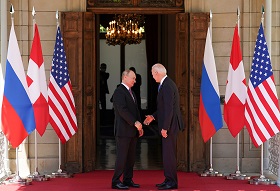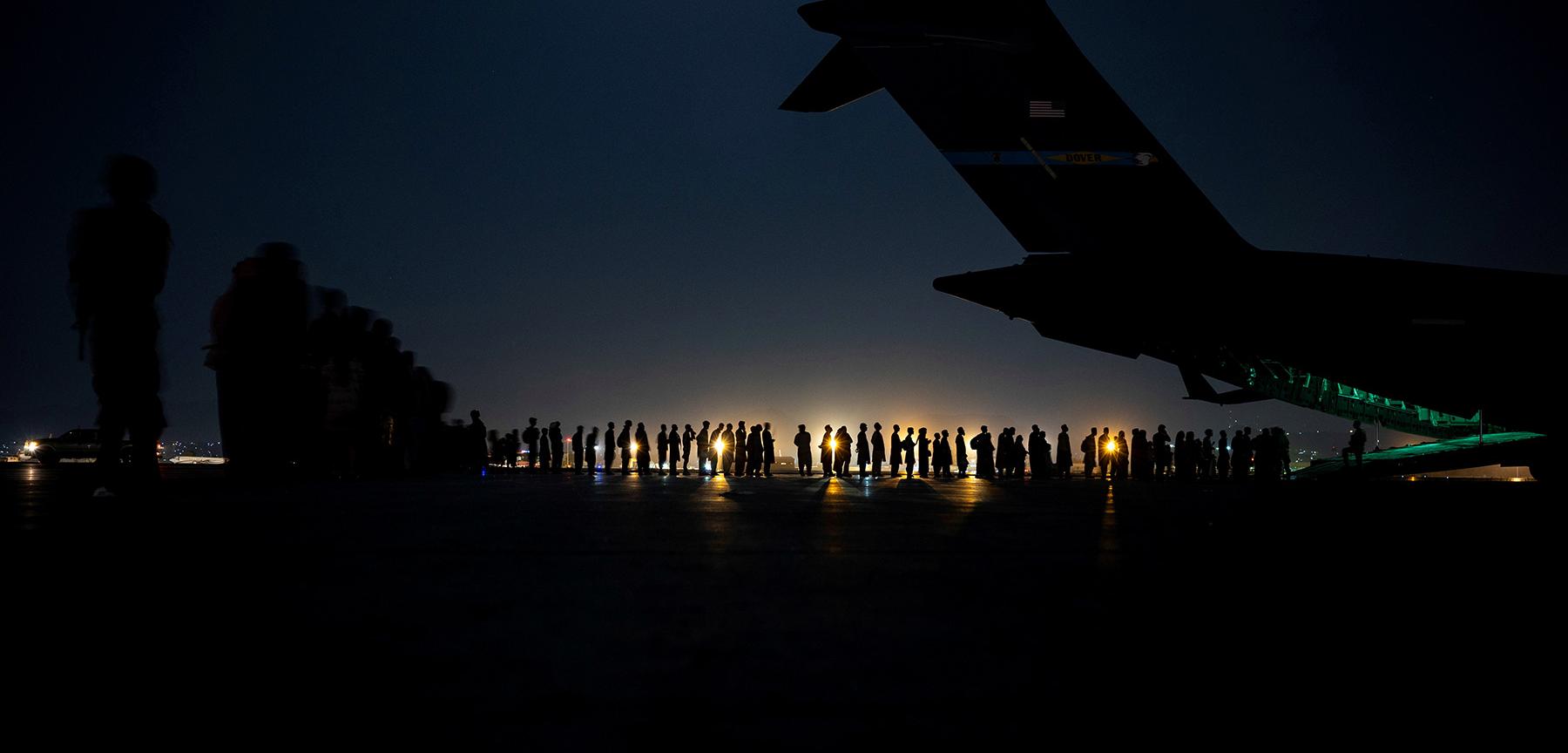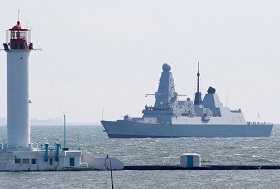A few days ago, Jens Stoltenberg, NATO Secretary-General, announced the expulsion of several diplomats from the Permanent Mission of the Russian Federation to the Organization. The only justification NATO could muster up for this was the traditional rhetoric of Russia’s alleged “malign activities” in NATO member states. As it so usually happens, no evidence or illustrations of such activities were ever provided. It is almost as if NATO’s leadership is consistently trying to destroy everything that Moscow and Brussels have built to bolster European security architecture through joint efforts during the last two decades.
While the reason why the two parties agreed two decades ago to establish the NATO–Russia Council and the extent to which the new joint mechanism indeed proved an agent of change for the military and political situation in the Euro-Atlantic (and globally) remain subject of persistent speculation, I believe it would be hard to refute the idea that the old shibboleths of the Cold War needed to be revised amid the evolving circumstances at the dawn of the new millennium. First and foremost, this had to do with security issues. By that time, sober-minded politicians in the West came to realize that Russia was far from what posed threats to world peace and international security.
It has been some 20 years since the NATO–Russia Council was established. Can we deem this experiment to be a success? Both a “yes” and a “no.” On the one hand, we all could see for ourselves that dialogue and cooperation were, in fact, possible. Over the years, joint working groups were offering decisions whose implementation was in line with the fundamental interests of both parties. These included combatting terrorism, engaging on the Afghanistan dossier, enhancing military and technical cooperation, addressing arms control in Europe as well as other issues.
NATO’s only approach to Moscow as of today is to expel as much staff as they can from Russia’s mission in Brussels. The purpose of all this is not hard to guess. NATO is busily getting ready for its next Summit, which is due to be held in 2022 in Madrid. At that summit, NATO plans to approve a new strategy for the alliance to make it “even stronger.”
This will not be an easy task in the wake of the alliance’s disastrous withdrawal from Afghanistan, which is why it has been taking strides to shift attention and search for an adversary whose presence would justify the organization’s continued existence as well as another hike in military budgets of its members. Individual statements make it clear that the new conceptual framework should bring NATO back to its former rhetoric of approaching Russia (and China) as a threat.
However short-sighted and dangerous such a step on the part of NATO could be, this does not erase from the agenda the question of what the Euro-Atlantic security architecture would look like in the future. New challenges and threats continue to undermine the entire system of international security. Therefore, the feat of building a full-fledged and equal dialogue between Moscow and the West on a whole range of strategic stability issues is more relevant than ever. Under the current circumstances, such a dialogue being absent is fraught with risks that are too high for all the parties. These problems can surely be covered up and left to fester beneath the surface. For how long, though?
A few days ago, Jens Stoltenberg, NATO Secretary-General, announced the expulsion of several diplomats from the Permanent Mission of the Russian Federation to the Organization. The only justification NATO could muster up for this was the traditional rhetoric of Russia’s alleged “malign activities” in NATO member states. As it so usually happens, no evidence or illustrations of such activities were ever provided. It is almost as if NATO’s leadership is consistently trying to destroy everything that Moscow and Brussels have built to bolster European security architecture through joint efforts during the last two decades.
Russia launched its Permanent Mission to NATO in 2003 following the establishment of the NATO–Russia Council (NRC) on May 28, 2002 in Rome. Prior to that, Russia’s ambassador to Belgium had also acted as the nation’s non-resident ambassador to the Organization. The establishment of the NATO–Russia Council was a momentous event, which is evident by the fact that the heads of state and government of all NATO member states as well as the president of the Russian Federation gathered in Rome to sign the Declaration on “NATO–Russia Relations: a New Quality” at an official ceremony.
I happened to be present at that ceremony in Rome. The atmosphere was very spirited, and the leaders were quite optimistic about the prospects of the new mode of cooperation between Russia and the West. Those present at that memorable event unanimously welcomed the new mechanism, while U.S. President George W. Bush stressed that should Russia be left behind the alliance would fail in resolving the issues facing the world in the new century and responding to the new security challenges in the Euro-Atlantic region and beyond. Jean Chrétien, Prime Minister of Canada, noted that NATO was “opening a new chapter in strengthening our ties with Russia,” emphasizing that the surest way of responding to the challenges of the 21st century would be to coordinate the efforts of the international community at large. He concluded, “It was high time that Russia be involved in the process.”
For his part, President Vladimir Putin said that Russia expected “the Rome Declaration to be a sound solution to work in a cooperative and constructive spirit rather than a mere statement of intentions.” He went on to say that Russia and NATO have a fraught history—however, the two had made real headway, shifting the paradigm “from opposition to dialogue, from confrontation to cooperation.” The Rome Declaration, Russia’s leader argued, was only to mark the beginning of the endeavours to arrive at fundamentally different relations.
While the reason why the two parties agreed two decades ago to establish the NATO–Russia Council and the extent to which the new joint mechanism indeed proved an agent of change for the military and political situation in the Euro-Atlantic (and globally) remain subject of persistent speculation, I believe it would be hard to refute the idea that the old shibboleths of the Cold War needed to be revised amid the evolving circumstances at the dawn of the new millennium. First and foremost, this had to do with security issues. By that time, sober-minded politicians in the West came to realize that Russia was far from what posed threats to world peace and international security. The foreground now featured a new set of global challenges, such as terrorism, WMD proliferation risks, illegal migration and regional crises, with no nation—even the largest and most powerful among the powers that be—able to counter them on their own. Russia was the first to face the challenge of global terrorism. Following hard on Russia’s heels, this threat engulfed the United States and other countries in its most cruel and dramatic form.
In accordance with the Rome Declaration, Russia and NATO member states committed to cooperating as equals in areas of mutual interest. The members of the Council, acting in their national capacities and in a manner consistent with their collective commitments and obligations, agreed to take joint decisions and bear equal responsibility, individually and collectively, for the decisions to be implemented. The Council saw some 25 working groups and committees established to foster meaningful cooperation in critical areas.
Following a meeting with NATO Secretary-General George Robertson in November 2002, President Vladimir Putin offered the following vision of Russia’s relations with NATO, “Never before have we raised the question of our full-fledged participation in NATO. Nor do we raise that matter today. Should our relationship, should our cooperation develop as positively as is the case now… And if NATO as an alliance transforms in implementing institutional reforms… And as long as our cooperation is in line with Russia’s national interests, meaning that we’ll see that this framework could serve a tool to pursue our own interests… Then our cooperation with NATO will surely be changing to encompass a broader involvement and participation.”
It has been some 20 years since the NATO–Russia Council was established. Can we deem this experiment to be a success? Both a “yes” and a “no.” On the one hand, we all could see for ourselves that dialogue and cooperation were, in fact, possible. Over the years, joint working groups were offering decisions whose implementation was in line with the fundamental interests of both parties. These included combatting terrorism, engaging on the Afghanistan dossier, enhancing military and technical cooperation, addressing arms control in Europe as well as other issues.
On the other hand, we also discovered that the old stereotypes were deeply entrenched in the minds of some strategists in the West who still believe Russia to be the principal and indispensable factor to cement “Western solidarity.” Otherwise, how can we account for the fact that NATO’s leadership chose to freeze all the Council’s proceedings and contacts with Russia contrary to what is stipulated in the Rome Declaration that provides for an urgent session of the NATO–Russia Council in the events such as brutal conflicts in South Ossetia or Ukraine?
NATO’s only approach to Moscow as of today is to expel as much staff as they can from Russia’s mission in Brussels. The purpose of all this is not hard to guess. NATO is busily getting ready for its next Summit, which is due to be held in 2022 in Madrid. At that summit, NATO plans to approve a new strategy for the alliance to make it “even stronger.”
This will not be an easy task in the wake of the alliance’s disastrous withdrawal from Afghanistan, which is why it has been taking strides to shift attention and search for an adversary whose presence would justify the organization’s continued existence as well as another hike in military budgets of its members. Individual statements make it clear that the new conceptual framework should bring NATO back to its former rhetoric of approaching Russia (and China) as a threat.
Apparently, the alliance would rather wave a final goodbye to the NATO–Russia Council by the time of the upcoming summit. This explains why they are trying to elicit a response from Moscow, which will definitely happen in the near future, likely to affect both Russia’s mission to NATO in Brussels and NATO’s Information Office in Moscow. It seems to be obvious that the only way an international organization can be effective is if this is indeed what all the parties want—in deeds rather than in words. If NATO has for whatever reason decided that it no longer needs the NATO–Russia Council, NATO should then be responsible for dismantling it.
However short-sighted and dangerous such a step on the part of NATO could be, this does not erase from the agenda the question of what the Euro-Atlantic security architecture would look like in the future. New challenges and threats continue to undermine the entire system of international security. Therefore, the feat of building a full-fledged and equal dialogue between Moscow and the West on a whole range of strategic stability issues is more relevant than ever. Under the current circumstances, such a dialogue being absent is fraught with risks that are too high for all the parties. These problems can surely be covered up and left to fester beneath the surface. For how long, though?







